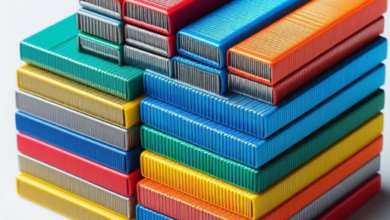Press-in grease fittings, also known as press-fit or push-in grease fittings, are used to provide lubrication points on various equipment and machinery. Installing these fittings is a relatively simple process. Here’s a step-by-step guide on how to install press-in grease fittings:
Materials You’ll Need:
- Press-in grease fittings (also called Zerk fittings or grease nipples)
- Grease gun
- Clean cloth or paper towels
- Safety glasses and gloves (recommended)
Step-by-Step Guide:
1. Choose the Location:
- Determine where you want to install the press-in grease fitting. This location should be accessible and allow for easy greasing of the component or bearing that requires lubrication.
2. Clean the Installation Area:
- Ensure the area around the installation point is clean and free from dirt, dust, and debris. Use a clean cloth or paper towels to wipe away any contaminants.
3. Select the Right Fitting:
- Make sure you have the correct size and type of press-in grease fitting for your application. Fittings come in various sizes, so choose one that matches the thread and diameter requirements of your equipment.
4. Lubricate the Fitting:
- Apply a small amount of grease to the threads of the press-in grease fitting. This will help it thread in more smoothly and reduce the risk of damage.
5. Insert the Fitting:
- Align the press-in grease fitting with the installation hole or access point on your equipment.
- Press the fitting into the hole firmly but gently. It should fit snugly without excessive force.
6. Check the Fit:
- Inspect the fitting to ensure it is seated properly and flush with the surface. There should be no gaps or protruding parts.
7. Test the Grease Gun:
- Before greasing, check your grease gun to ensure it is loaded with the appropriate type of grease and is in working condition.
8. Grease the Component:
- Insert the nozzle of the grease gun onto the press-in grease fitting.
- Pump the grease gun handle to deliver grease into the component or bearing that requires lubrication.
- Continue greasing until you see fresh grease coming out around the fitting or until you feel resistance, indicating that the component is adequately lubricated.
9. Wipe Away Excess Grease:
- After greasing, wipe away any excess grease from the fitting and surrounding area using a clean cloth or paper towels.
10. Repeat as Needed:
- Depending on your equipment and maintenance schedule, you may need to install and grease multiple press-in fittings at various locations.
11. Perform Regular Maintenance:
- Incorporate regular greasing and maintenance into your equipment’s maintenance schedule to ensure smooth operation and prevent premature wear and tear.
Press-in grease fittings are a vital part of equipment maintenance and can help extend the life of bearings and moving parts. Regularly inspect and lubricate your equipment to keep it in optimal
Also Read:
https://infusionpost.com/how-to-install-anderson-5th-wheel-hitch/
https://infusionpost.com/how-to-install-anti-rattle-clips-on-brake-pads/
https://infusionpost.com/how-to-install-artificial-green-wall-on-concrete/
https://infusionpost.com/how-to-install-artificial-green-wall-on-concrete/



